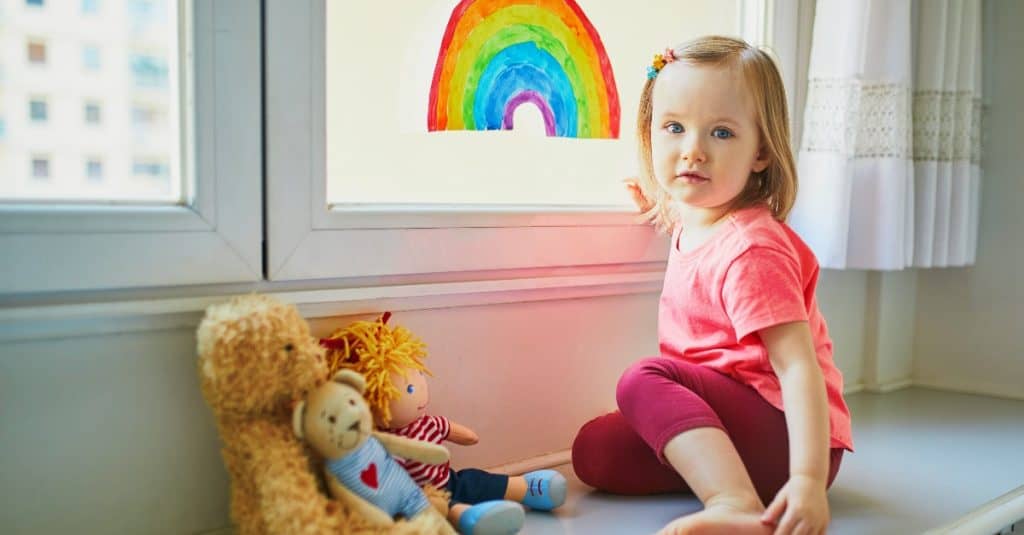Toys can be important developmental tools for children of all ages. They allow for creativity and spontaneity.
According to Dr. Vicki Panaccione, a child psychologist and founder of the Better Parenting Institute, play is “important in the social, mental, physical, and emotional development of children.”
In fact, toys can be so beneficial that the same toy can serve a child through many different developmental stages.
Dolls and action figures can be excellent at allowing children to engage in pretend play. But is there such a thing as a “normal age to stop playing with dolls?”
Every child is different and there is no specific line defining when a child should stop playing with dolls or action figures. However, children usually stop playing with dolls around 9 to 10 years of age, as they get closer to the pre-teen years.
At What Age Do Children Stop Playing with Dolls?
Children usually begin to play with dolls at around 18-24 months old, when they start to engage in pretend play. At this time, it is important to let children play with the toys of their choosing, regardless of their gender.
It is also helpful to allow your child to play with simple dolls rather than those that talk, sing, or instruct them to perform a specific activity as such toys can limit their ability to use their imagination and take charge of the situation.
During their pre-teen years, your child will gradually stop playing with dolls as a result of their changing interests and peer influences. They must be allowed to do this on their own, so they do not feel forced to go one way or the other.
Here are a few benefits and things to look out for while your child plays with dolls.
Benefits of Playing with Dolls (and Action Figures)
1. It Improves Executive Functioning Skills
According to the Center on the Developing Child at Harvard University, “executive functioning skills and self-regulation are the mental processes that enable us to plan, focus attention, remember, and juggle multiple tasks successfully.”
Pretend play requires children to block out reality so they can “exist” in an imaginary world of their creation. Consequently, playing with dolls requires them to focus on their new reality, if only for a limited time, and adjust and create new plans as they go.
It also requires them to use their working memory to retain and remember a variety of information regarding the new reality they’ve created so they continue with their play.
2. It Allows Your Child to Practice Their Social Skills and Empathic Development
Pretend play can be both social, as the child engages in peer play, or solitary.
However, according to a recent study published in Frontiers in Human Neuroscience, all pretend play can be considered social since even solitary play involves relating to another, even if it is an imaginary “other.”
Playing with dolls allows children to practice social interactions and rehearse perspective-taking. Children are sponges and they can act out and practice social interactions they observe throughout their daily lives.
Additionally, pretend playing with dolls helps children develop their empathic reasoning and skills.
3. Playing with Dolls Allows Children to Work through Their Emotions
When children have a bad day, they often want to play instead of discussing it. During pretend doll play, they can let out their feelings, and work through their emotions without being reprimanded or being taught a lesson.
They can feel free to relive the events of their day and feel free to explore the emotions brought out through those experiences.
4. Pretend Play with Dolls Can Help with Communication
When children feel unable to express their wants or needs, they can do so through pretend play with their dolls.
This can be particularly helpful when children feel unheard. Playing with dolls can allow them to role-play and find their voice, eventually leading to better communication with those around them.
5. It Helps Them Feel Less Lonely
Shy children or those without siblings can often feel alone and cut off from the rest of the world. They may feel as though they are missing out on social interaction and companionship.
Playing with dolls grants them the camaraderie they seek, even if it is only imaginary. In their world, they find the support and friendship they lack in real life.
With enough practice on their own, they can hopefully gather the courage to put their practiced skills to use with their real-life peers.
6. Pretend Play Can Help Improve Their Problem-solving Skills
As children play pretend with their dolls or action figures, they can go over difficult scenarios or issues they’ve had in real life to figure out the best solution or course of action.
They can explore as many alternatives and solutions as they need until they arrive at what they feel is the best solution.
Things to Look Out for as Children Play with Dolls
Just as there are many benefits to children playing with dolls, there are a few things parents should look out for.
1. Some Dolls and Action Figures May Set Unrealistic Beauty Standards for Children
Generally, dolls and action figures are safe for children as long as they are age-appropriate. However, some dolls may set unachievable beauty standards that young minds may not be mature enough to discern for themselves.
Although there is very little evidence to support any potential for psychological damage from playing with certain dolls, it is encouraged parents have age-appropriate discussions with children about having a healthy body image.
Encouraging children to have a positive self-image and being a positive role model for your child can build the foundation for a healthy adult.
2. Your Child May Only Want to Play with Dolls
In some cases, children may only want to play with dolls and will avoid all other types of play.
Encourage your child to engage in other pastimes, such as physical or creative activities. Aim to teach your child to balance a variety of interests and help them schedule them out if needed.
If they cannot find any activities that interest them, help them explore different hobbies and pastimes, and enroll them in extra-curricular activities or classes to help them socialize and discover other passions.
3. Playing with Dolls May Attract Bullying
Your child will stop playing with dolls at their own time. While the normal age for children to stop playing with dolls is between 9-10 years of age, some may continue to play with them well into their teenage years.
Although there is nothing wrong with your child playing with dolls past their pre-teen years, their peers may find it odd and may single out your child as strange or weird.
Insensitive children may taunt or call your child names. This may prove to be very hurtful to your child and you will want to do anything you can to protect them.
However, do not discourage them from playing with their dolls if that is what they enjoy. Instead, instill in them the confidence they need to be themselves despite what others may think.
Ask your child if they’d rather stop playing with their dolls or stop playing or hanging out with mean, hurtful friends.
4. Beware of Children Destroying or Disfiguring Dolls During Play
As with any type of toy, always keep a watchful eye as your children play.
If you observe your child destroying or disfiguring their dolls or action figures, it may be a sign of some troubling behavior. Try to figure out the root of the behavior before judging or shaming them.
Talk to your child about their daily activities, their friends, and their feelings. Talk to their teacher, if they are in school or daycare to see if they’ve observed any behavior out of the ordinary.
Engaging in destructive behavior may be a sign of possible bullying or abuse and you may want to seek the help of a qualified professional.
On the other hand, it could simply mean your child is curious and is simply experimenting with their dolls.
Either way, doing a bit of detective work before coming to any conclusions will give you the peace of mind you need.
Final Thoughts
Playing with dolls can be an excellent way for children to engage in pretend play. It allows them to be creative and develop social, emotional, and mental skills they will use throughout their lives.
Playing with dolls comes with many benefits; however, you may wonder what the normal age for your child to stop playing with dolls is.
While most children stop playing with dolls in their pre-teenage years, every child is different, and they should be allowed to stop playing with dolls at their own pace.







